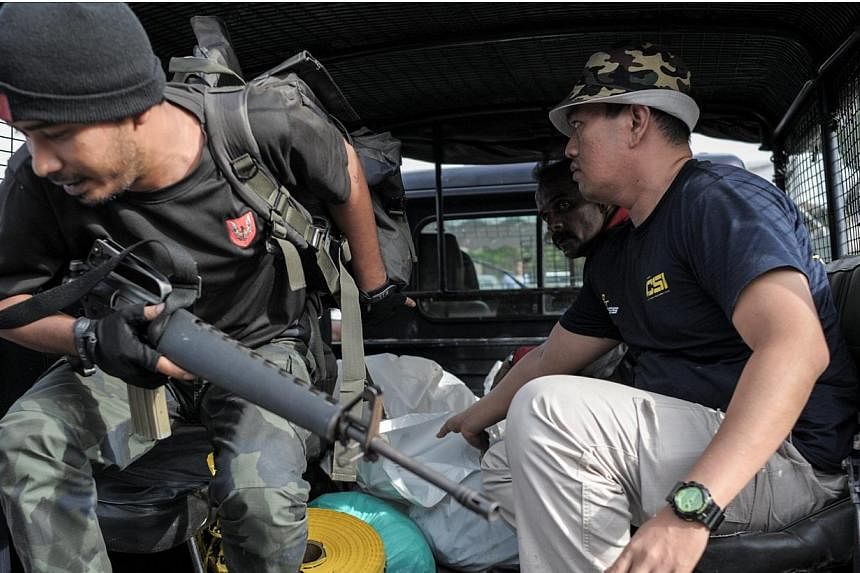TOKYO (AFP) - Malaysian Prime Minister Najib Razak on Monday urged Japan and others in the global community to help tackle South-east Asia's migrant crisis, saying it requires "an international solution".
Datuk Seri Najib, on the second day of a three-day visit to Japan, held talks with Prime Minister Shinzo Abe. "I also took the opportunity to brief the latest challenge that we have, which is the boat people Rohingyas," Mr Najib told reporters after the summit. "It is also an international problem, which requires an international solution. Therefore anything Japan can do to help us alleviate this problem will certainly be very much welcome."
Mr Najib made the remarks hours after he said on his Facebook and Twitter accounts that he was "deeply concerned" by the discovery of mass graves of suspected illegal migrants in northern Malaysia, and vowed to find those responsible.
Police there said they had found 139 grave sites and 28 abandoned detention camps used by people-smugglers in a network whose extent is only just begining to emerge.
Police in neighbouring Thailand in early May had found secret human-trafficking camps on their side of the border and dozens of shallow graves. These are the first found in Malaysia.
After initially turning boat people away, Malaysia and Indonesia last week bowed to international pressure and said they would admit them pending their repatriation or resettlement elsewhere.
In a joint statement with Mr Najib, Mr Abe welcomed the accord between Malaysia and Indonesia, "acknowledging the dire humanitarian circumstances with regard to the current development concerning the irregular movement of people".
Rights groups have long accused Malaysian authorities of not doing enough to curb human-smuggling.

